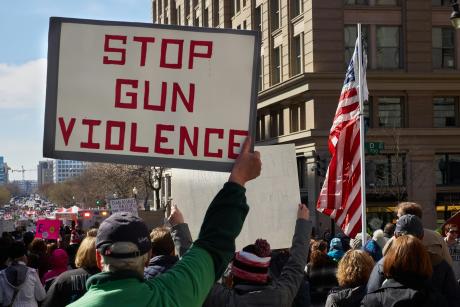
The Community Family Life & Recreation Center at Lyon Park in Durham, NC.
Published October 19, 2018, last updated on April 6, 2020 under Voices of DGHI
My understanding of community health initially stemmed from my global health education. This past May, I graduated from Duke University with a double major in biology and global health.
A multidisciplinary approach underlined the global health undergraduate curriculum. Classes like “Narratives of Living with HIV/AIDS” and “Social Determinants of Public Health” showed me different perspectives of medicine: social, economic and psychological. These classes complemented my science classes and encouraged me to value the importance of a holistic approach to medicine.
My course work taught me about international health disparities but also promoted the motto that “global is local and local is global.” I was encouraged to look in my own environment for local populations that were underserved and experienced higher burdens of disease. I found that there were health disparities right outside Duke’s campus in Durham that demanded just as much attention as international disparities. Thus, my interest in community health blossomed.
Given my interest in community health and family medicine, I decided to spend this year gaining practical experience in community health outreach. I am spending the year as a Duke Chapel PathWays fellow at the Department of Community and Family Medicine. Working this year at the Department of Community and Family Medicine has refined my concept of family medicine and community health. I have learned how involved the family medicine specialty is with community-based research, health policy, and education. My experiences have shown me how important teamwork is in community health work. I have learned how health care providers work collaboratively with community partners, local health departments, and outreach organizations to provide the best care and resources to their patients.
One of the biggest lessons I have learned from this fellowship is the framework for community engagement. I learned that involving the community and collaborating with its members are cornerstones to improving public health. I also learned that one of the pillars of community health work is community empowerment. Often, underserved communities are assessed in terms of their problems. However, this perspective disempowers the community and makes the community feel like they are undervalued. Alternatively, the community health empowerment theory emphasizes that no external entity should assume a community’s need or try to enforce unwanted changes by the community. This theory advocates for assessing communities in terms of their own assets, resources, and skills.
Learning about the community health empowerment theory reminded me again of the lessons I learned from my undergraduate global health curriculum about cultural competency and global health ethics. We learned that in global fieldwork, community partners are invaluable assets. Through my fieldwork experience in the Student Research Training program in Haiti, I learned just how true this was. The local doctors, nurses and translators we worked with provided valuable insights and became true partners in our research efforts.
After learning about what this framework emphasizes, I saw the principles put to practice through several projects at the Division of Community Health. One example is the health education lessons the division staff teaches at Camp Calvary—a summer camp for kids at the Community Family Life & Recreation Center at Lyon Park. This year, the lessons focused on self-awareness and empowerment. We taught the students how to increase self-awareness, build interpersonal and intrapersonal community skills and establish healthy support systems. Through the lessons, I could see that the activities created a positive social environment for the kids to grow.
The lessons at Camp Calvary emulated the empowerment theory by building up the kids’ strengths and skills to create positive change in their social communities. I have really enjoyed getting to work on programs and initiatives that practice the community health empowerment model. I am grateful for all the lessons I have learned about community health from my fellowship so far. As somebody interested in a career in the health field, I will carry these invaluable lessons with me in the future.
This post was originally published on the Duke University Office of Civic Engagement website.


